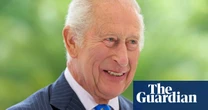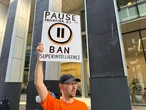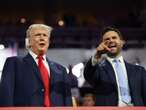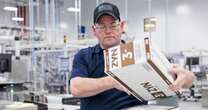Donald Trump isn’t a fan of EVs.
He reportedly called the Biden administration’s push for EVs “ridiculous” policy in a recent meeting with oil industry executives. He said EV incentives were “one of the dumbest [decisions] I’ve ever heard.” He has claimed that the shift to EVs will cause a “bloodbath” in the U.S. economy and kill the auto industry. (In reality, industry experts say that because the rest of the world is already moving to EVs, the U.S. needs to do the same to survive.) In a post on Truth Social last Christmas, he called out “thugs” who support “electric car lunacy.” (“May they rot in hell,” he wrote. “Again, Merry Christmas!”) If elected, he has vowed to reverse the EPA’s pollution rules for cars.
So when Elon Musk announced over the weekend that he had endorsed Trump for president—shortly after donating an undisclosed amount to a super PAC that supports Trump’s campaign—it didn’t necessarily seem like a decision in the best interest of one of the world’s largest EV companies. But Trump has changed his position on issues in the past (he changed his mind about abortion at least 15 times, for example). It’s possible that the Tesla CEO could persuade Trump to rethink electric cars.
Musk may already have had an impact. “Trump’s anti-EV rhetoric, which is something we’ve worked to push back against, has been quieting a little bit,” says Michael Murphy, a Republican strategist and CEO of the EV Politics Project, which works to end the partisan divide over EVs. “And it might be Elon’s influence.”
At Tesla’s annual shareholder meeting in June, one shareholder noted that Trump had recently said he was a “big fan” of Tesla, and asked Musk what he’d said to the former president. Musk said he’d told Trump that electric cars are “pretty good for the future,” and that, “America’s the leader in electric cars.” (China actually dominates the world of EVs, though U.S. investments, thanks to incentives in the Inflation Reduction Act, are helping.) Trump reportedly told Musk that many of his friends had Teslas and loved them. Trump also reportedly used to own a Tesla himself.
A conservative case could be made for EVs even while ignoring the benefits for the climate and air pollution. The cars offer energy independence from the global oil market, which has been especially volatile in recent years. And while Trump has argued that the U.S. electric grid can’t handle EVs, the vehicles could also help strengthen the grid by sending power back on demand. Federal support for EV and battery manufacturing has also led companies to invest hundreds of billions in new American factories, bringing jobs back from China—and much of that has gone to red and purple states like Georgia, Alabama, South Carolina, and Tennessee.
“One of the greatest secrets is the massive increase in American manufacturing jobs connected to this,” says Murphy.
In surveys, Republican voters like some aspects of EVs. “When you look at vehicle attributes, Republicans and Democrats look very much the same,” Murphy says. “They both like the idea of EV performance—fast and quiet—and they like the idea of never paying for gas.” EV subsidies are also popular, he says. But he argues that it was a mistake for car companies to focus on climate change in their marketing, because that turned away some potential buyers. Right now, Republicans are much less likely to say they want to buy an EV.
Elon Musk could play a role in changing consumers’ opinions, not just Trump’s. In a survey, the EV Politics Project found that around 60% of Republicans said that Musk was a good ambassador for EVs. Around two-thirds of people who believe climate change is “overhyped” also thought Musk was a good ambassador for EVs. (Only around half as many Democrats and people concerned about climate change agreed; Musk’s MAGA shift probably affected Tesla sales with these buyers.)
It’s not clear how far his influence can go. Musk also talked to Trump during his last administration, when Trump attempted to eliminate the EV tax credit and roll back vehicle emission standards. In 2022, Trump said Musk had asked for help for “his electric cars that don’t drive long enough,” and that he could have asked the CEO to “drop to his knees and beg.”
But Trump has also made it clear that money talks. In a meeting with oil execs, he reportedly said that he would end EV incentives if they donated $1 billion to his campaign. Musk reportedly plans to give around $45 million a month to a pro-Trump super PAC.
The transition to EVs is already well underway. Still, the policy decisions in the next administration will impact how quickly it happens. Biden put in place ambitious emissions standards, incentives for consumers, and support for manufacturers that Trump could try to roll back or slow down. And that could change the role that the U.S. ultimately plays in the auto industry globally.
“I think it would be a tragedy,” Murphy says. “We would look back in 10 years and rue the day that we had an administration that decided to try to sabotage American production versus the Chinese who are going whole hog to basically get 90% of more of auto manufacturing in the next 15 years on their doors. I think we’re going look back and that’ll be the biggest industrial policy fiasco of American history if we allow that to happen.”










No comments